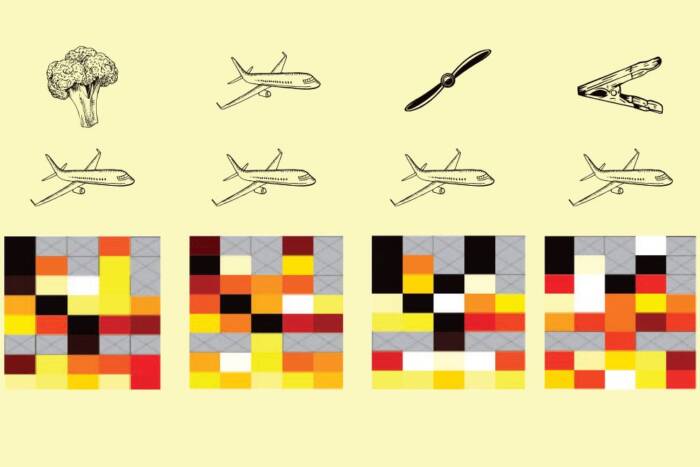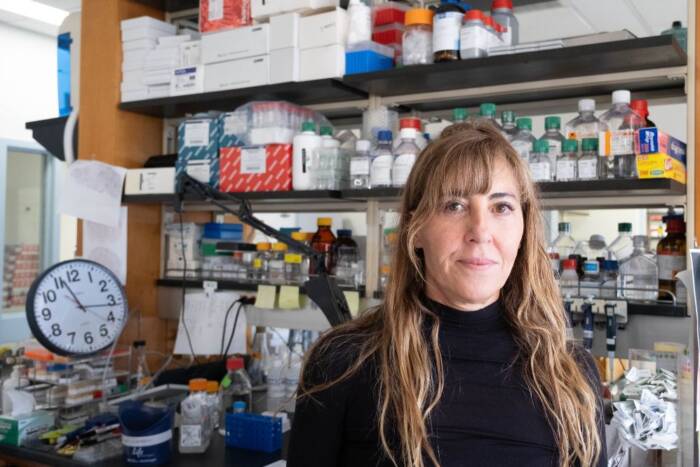Clinical immunologist to join Rockefeller University
by THANIA BENIOS
 (opens in new window)In September, pediatrician and immunologist Jean-Laurent Casanova will join the Rockefeller University faculty as professor of medicine and head of the Laboratory of Human Genetics of Infectious Diseases. The appointment of Dr. Casanova, who comes to Rockefeller from Hospital Necker for Sick Children in Paris, was approved by university trustees in June.
(opens in new window)In September, pediatrician and immunologist Jean-Laurent Casanova will join the Rockefeller University faculty as professor of medicine and head of the Laboratory of Human Genetics of Infectious Diseases. The appointment of Dr. Casanova, who comes to Rockefeller from Hospital Necker for Sick Children in Paris, was approved by university trustees in June.
Dr. Casanova studies genetic mutations that predispose individuals to specific pathogens, and his findings have both challenged and brought together divergent theories in the field of immunology. With this unified conceptual framework, Dr. Casanova has provided experimental evidence for a new perspective of why some children get sick during the course of infection while others exposed to the same pathogen do not — work that has paved the way for the development of treatments.
“Dr. Casanova’s research has forced scientists to reexamine accepted ideas in immunology and clinical medicine,” says Rockefeller president Paul Nurse. “This innovative approach to translational research cuts across many fields and opens up new and exciting opportunities for collaboration.”
As a clinical scientist, Dr. Casanova will establish part of his research program at The Rockefeller University Hospital and the Center for Clinical and Translational Science, where he will recruit children from around the globe who are selectively predisposed to developing infectious diseases, particularly tuberculosis, invasive pneumococcal diseases and herpes simplex encephalitis. By studying the immune systems of these children, Dr. Casanova will work to identify genetic lesions that confer this vulnerability and to prove that, as a rule, life-threatening infectious diseases in children are caused by mutations in a single gene.
“The goal is to learn where these genetic mutations exist in certain diseases and then try to patch them up by restoring the missing element,” says Dr. Casanova.
Dr. Casanova and his colleague Laurent Abel recently found that mutations in various immune system pathways tend to make children susceptible to specific pathogens. In this context, they found that children who are prone to tuberculosis do not produce enough of the chemical that thwarts tuberculosis-causing bacteria; the same is true, they discovered, for herpes simplex encephalitis. Dr. Casanova has shown that patients can significantly benefit from a restoration of this deficient response.
In the case of herpes simplex encephalitis, Dr. Casanova has already identified two genes that can predispose children to the infection. At Rockefeller, he will aim to decipher the entire genetic basis of the disease and identify alleles that make children susceptible to it. He will also continue to test various infectious diseases and prove, for each, that one specific pathway is primarily altered.
“Certain human genes exert an almost pathogen-specific effect in protective immunity,” says Dr. Casanova. “This raises the exciting possibility that animals and microbes coevolved just as plants and pathogens did. Those that developed resistance to these pathogens lived on.”
Dr. Casanova received an M.D. in 1987 from the University of Paris René Descartes and a Ph.D. in immunology from the Pasteur Institute in Paris and the Ludwig Institute for Cancer Research in Lausanne in 1992. He is currently professor of pediatrics and, with Laurent Abel, director of the Laboratory of Human Genetics of Infectious Diseases at the Necker Medical School Hospital for Sick Children. In 2004, he received the Professor Lucien Dautrebande Prize from the Belgian Royal Academy of Medicine and, in 2008, the Richard Lounsbery Award from the French and American Academies of Sciences.


